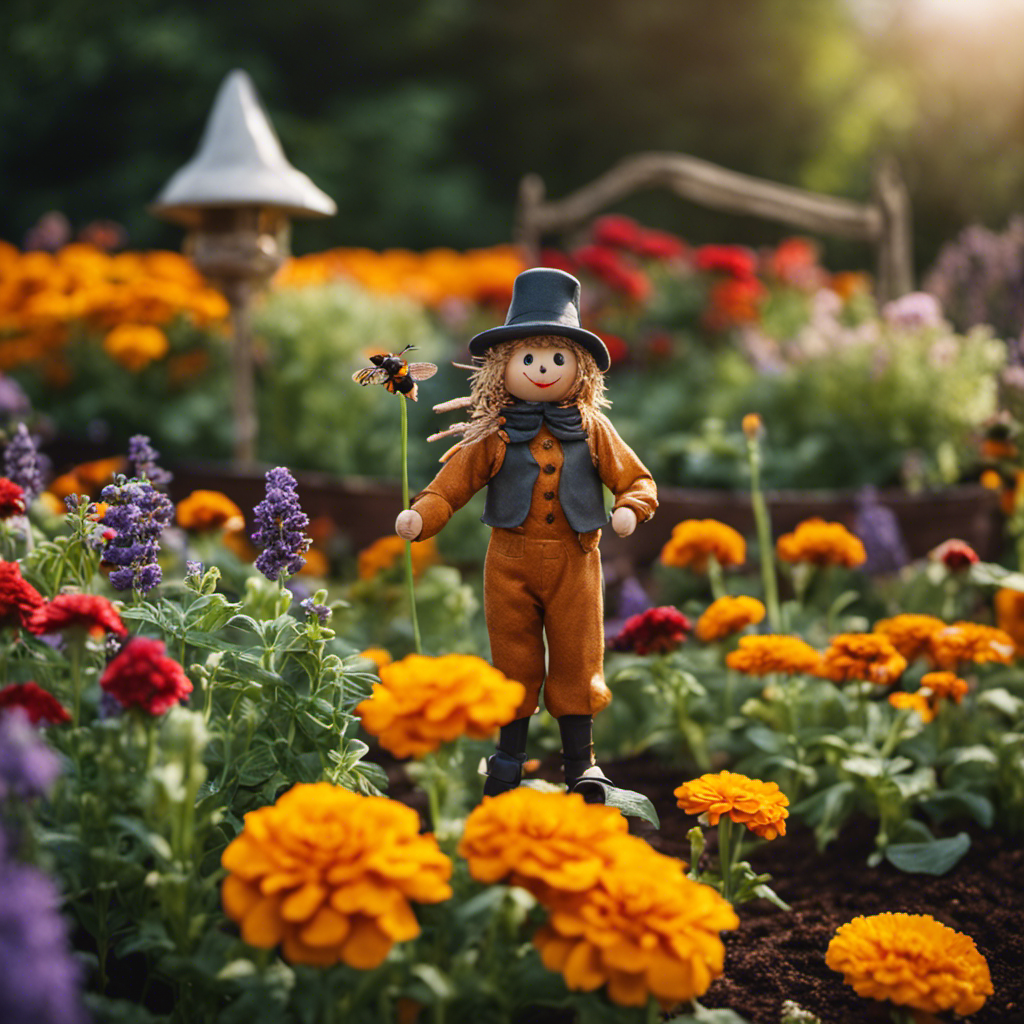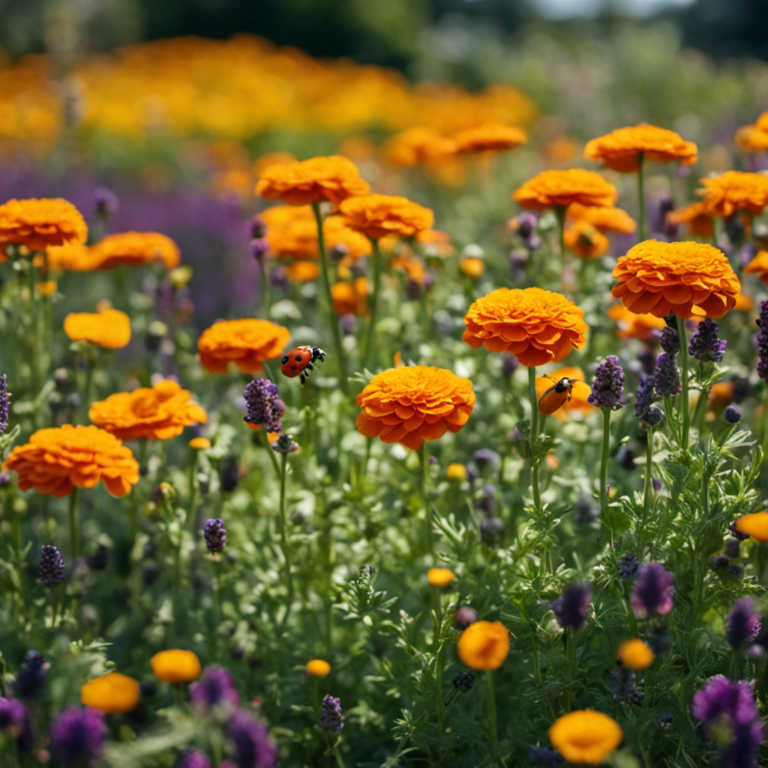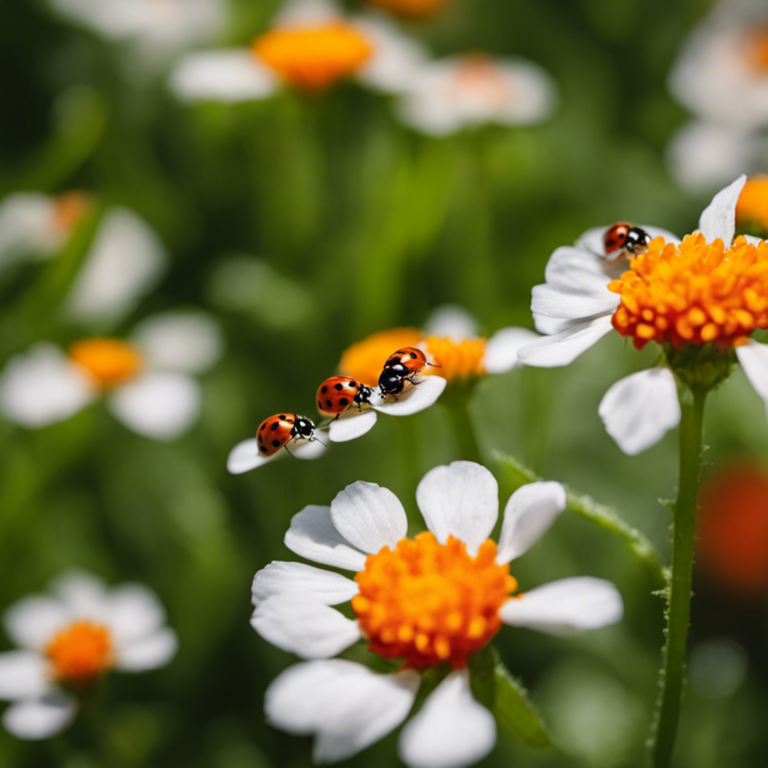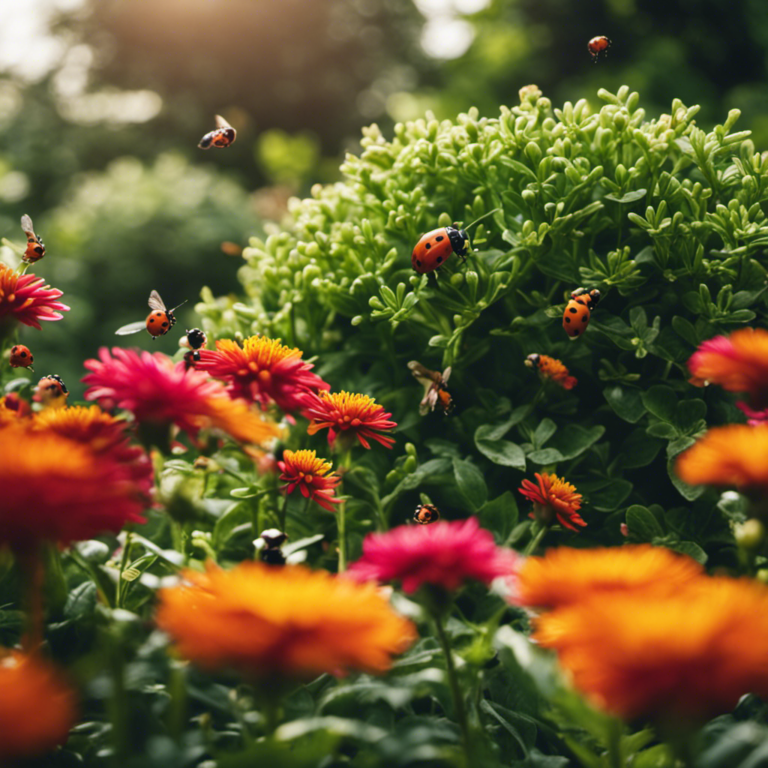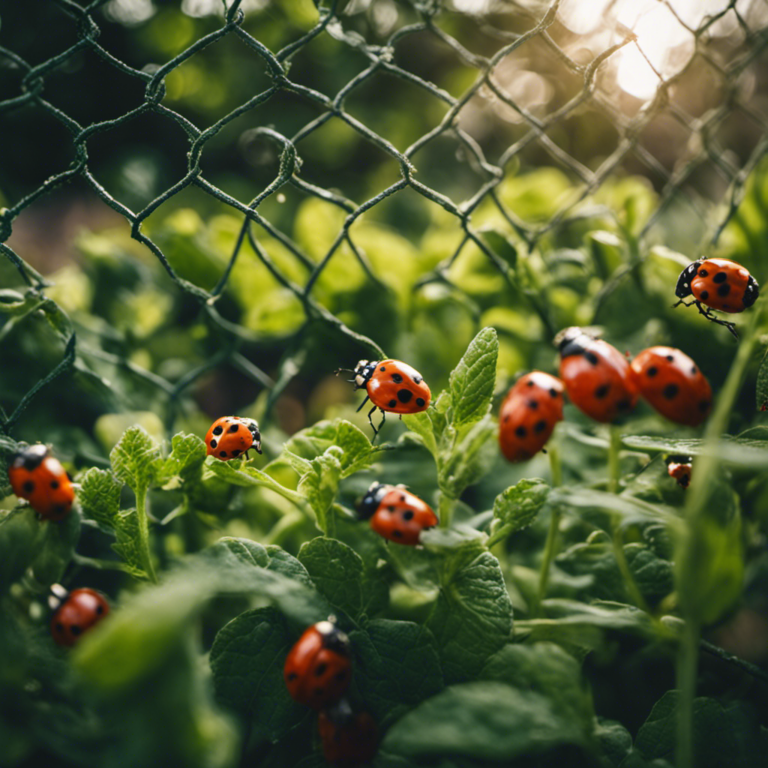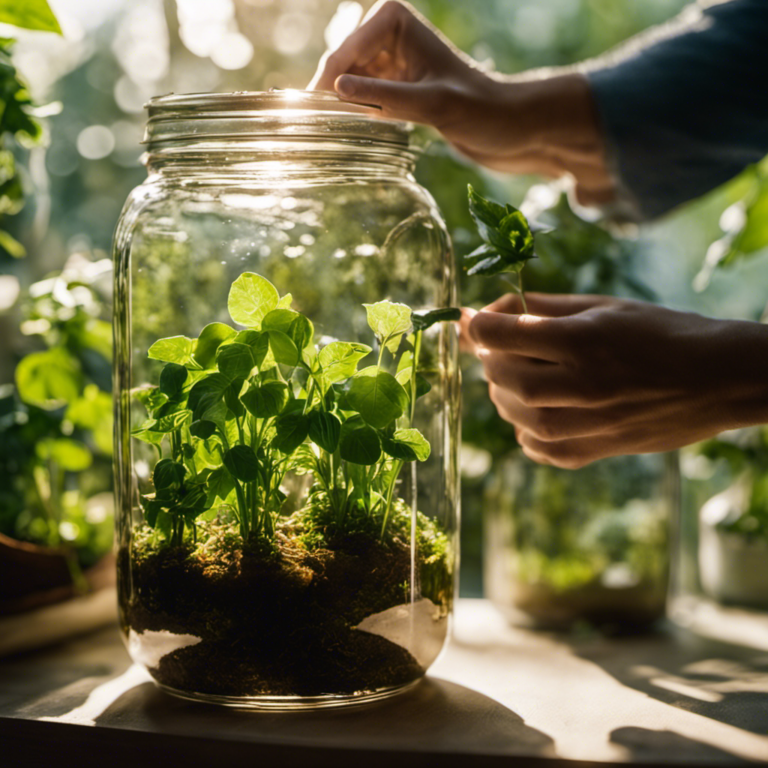Is your edible garden under attack from unwanted pests? Don’t worry, there are natural ways to repel them and protect your precious crops!
In this article, we’ll explore the use of essential oils, beneficial insects, companion planting, homemade sprays, and physical barriers as effective pest repellents.
By implementing these techniques, you can ensure a flourishing garden that provides you and your loved ones with a bountiful harvest.
Bid farewell to pests and welcome a thriving garden!
Key Takeaways
Incorporating natural pest repellents into your edible garden is a practical and effective way to protect your plants. Essential oils, beneficial insects, companion planting, homemade sprays, and physical barriers are all valuable methods to keep pests away.
By using natural solutions, you can help your garden thrive and prevent pesky critters from damaging your plants. These techniques will create a beautiful and bountiful garden that remains free from pests.
Essential Oils
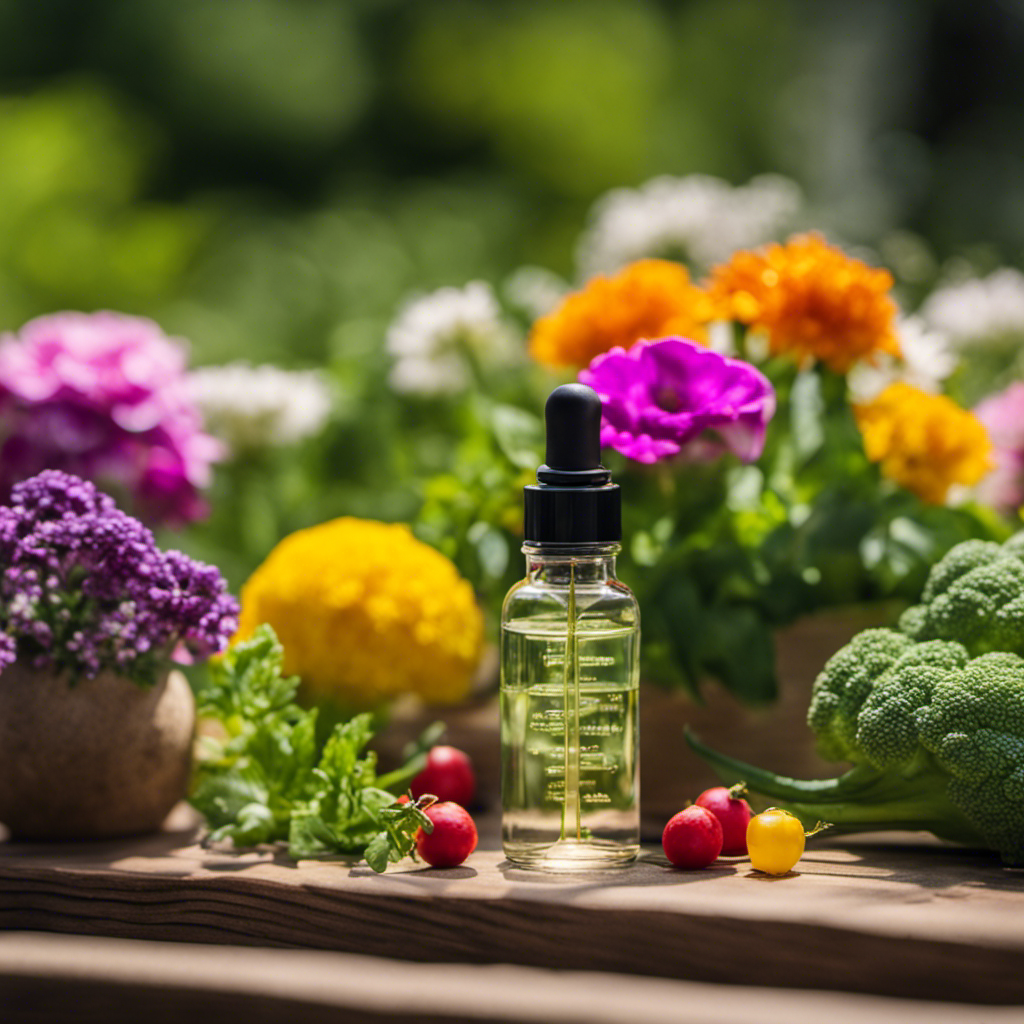
To keep pests away from your edible garden, consider using essential oils. Not only are they a natural and safe alternative to chemical pesticides, but they can also add a delightful flavor to your cooking and create a calming atmosphere through aromatherapy.
When used in cooking, essential oils can enhance the taste of your dishes and provide a unique twist to your recipes. For example, a few drops of lemon essential oil in your salad dressing can give it a refreshing citrusy flavor.
Additionally, using essential oils for aromatherapy can create a soothing environment in your garden, helping to reduce stress and promote overall well-being. Simply dilute a few drops of lavender or chamomile essential oil in a spray bottle and mist it around your garden. Not only will it repel pests, but it will also create a pleasant and inviting atmosphere for you to enjoy.
Beneficial Insects
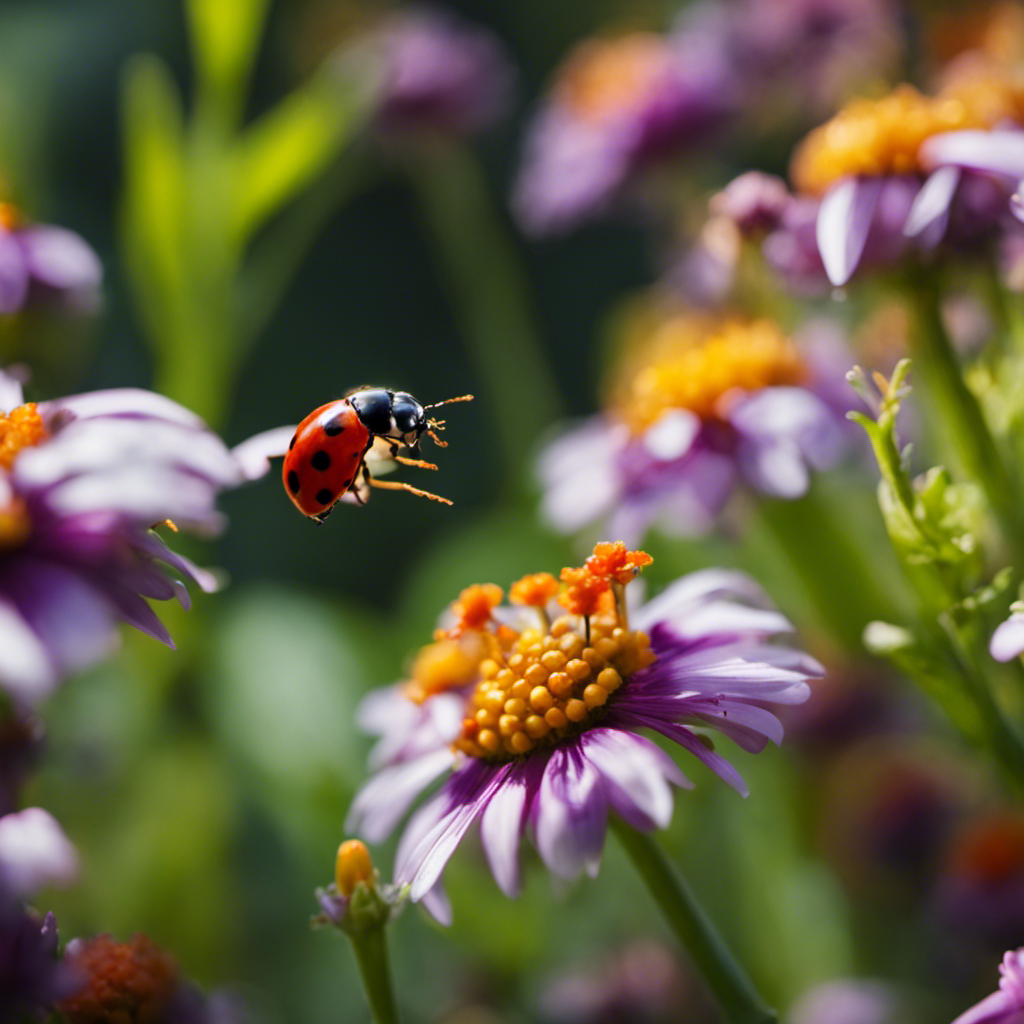
In order to naturally repel pests in your edible garden, you can enlist the help of beneficial insects. These insects are not only effective in controlling pests, but they also play a crucial role in attracting pollinators and promoting organic pest control. By creating a welcoming environment for these beneficial insects, you can improve the health and productivity of your garden.
Here is a table showcasing some common beneficial insects and the pests they help control:
| Beneficial Insect | Pests Controlled |
|---|---|
| Ladybugs | Aphids, mealybugs |
| Lacewings | Whiteflies, aphids |
| Hoverflies | Aphids, thrips |
| Parasitic Wasps | Caterpillars, aphids |
| Ground Beetles | Slugs, snails |
Companion Planting
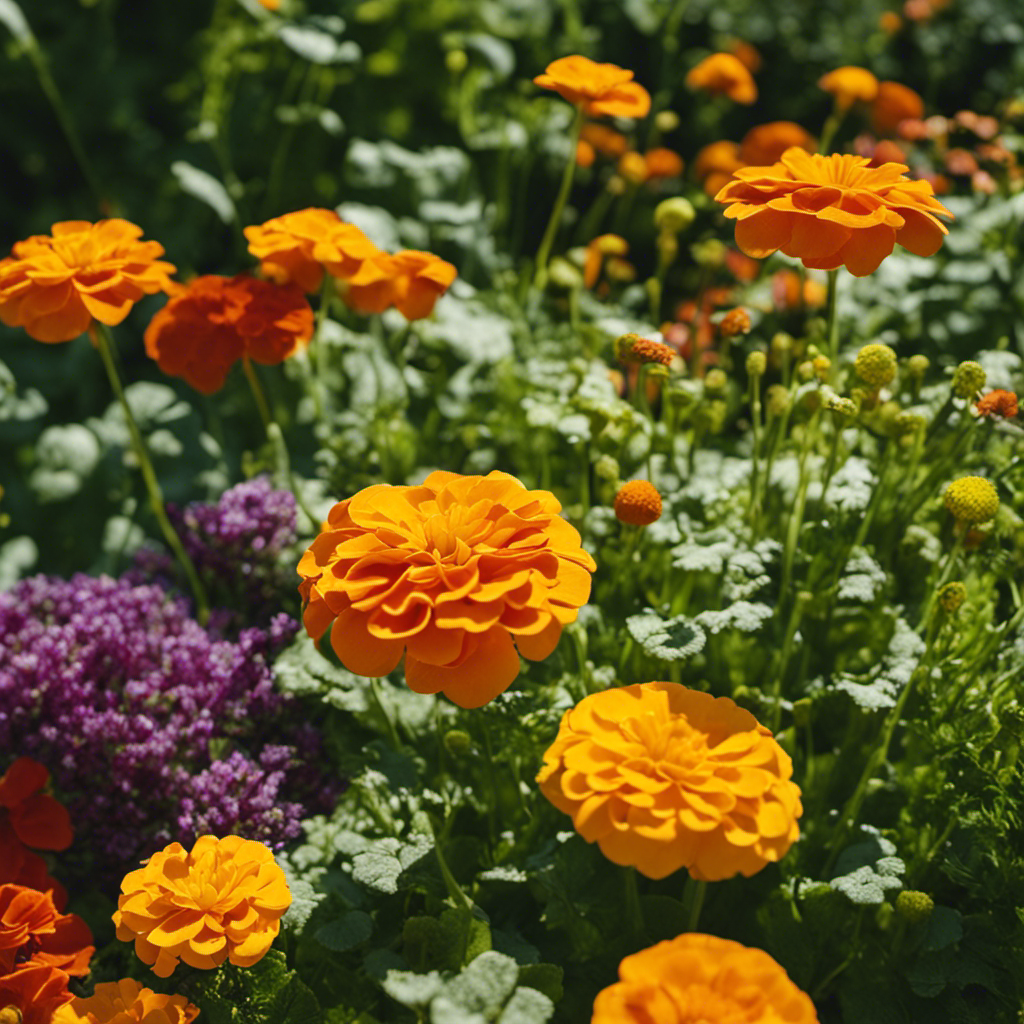
Companion Planting for Natural Pest Control in Your Edible Garden
To naturally repel pests in your edible garden and promote organic pest control, you can utilize the technique of companion planting. Companion planting involves strategically planting certain plants together to maximize their benefits and deter pests. One effective method is to choose pest-resistant plant varieties that have natural defenses against pests, reducing the need for chemical pesticides. For example, marigolds are known to repel nematodes, while garlic and onions deter aphids and spider mites.
Another approach is crop rotation, which involves rotating your crops each season. This disrupts the life cycles of pests and prevents the buildup of specific pests that target particular plants. By implementing this technique, you can maintain a healthy balance in your garden and reduce the risk of pest infestations.
Incorporating companion planting and crop rotation in your edible garden not only helps repel pests naturally but also contributes to the overall health and productivity of your plants. By understanding the specific needs of your crops and utilizing these techniques, you can create a thriving and sustainable garden.
Homemade Sprays

For natural pest control in your edible garden, consider using homemade sprays. These DIY remedies are a great alternative to commercial products because they’re organic and safe for your plants and the environment.
One effective homemade spray involves blending a few cloves of garlic with water and straining the liquid into a spray bottle. This powerful solution acts as a natural repellent for many common garden pests.
Another option is a mixture of water and liquid soap, which helps suffocate insects and disrupt their feeding habits. It’s important to test these sprays on a small area of your plants before applying them to the entire garden.
Homemade sprays offer a cost-effective and eco-friendly way to keep pests away from your edible garden.
Physical Barriers
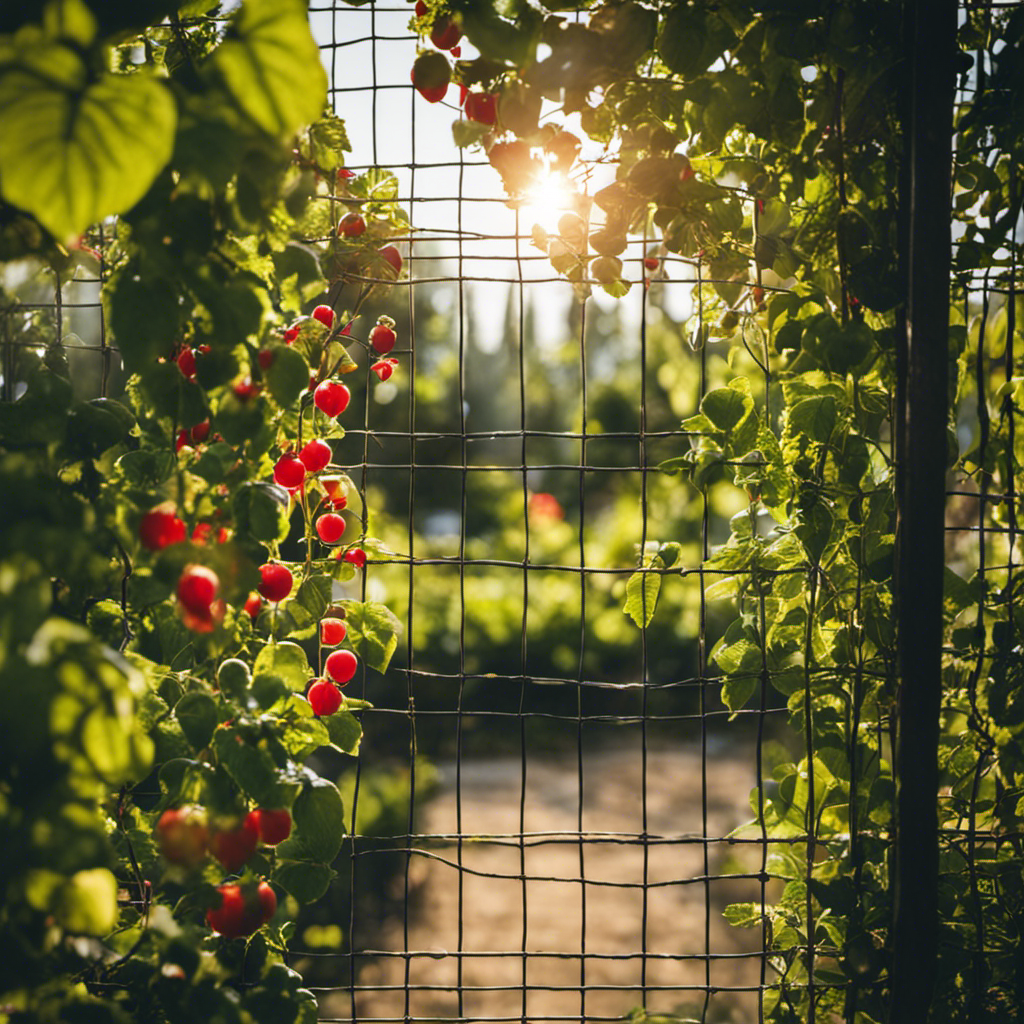
To protect your plants from pests, you can use physical barriers like fences or netting. These barriers serve two purposes: keeping unwanted visitors out and providing a sense of security for your plants. Here are five practical and effective physical barriers you can consider for your edible garden:
- Install a sturdy fence around your garden to deter larger animals such as deer and rabbits.
- Use netting to cover your plants and shield them from birds and flying insects.
- Create vertical gardening structures like trellises or arbors to discourage climbing pests.
- Build raised beds, which not only make gardening easier but also act as a physical barrier against ground-dwelling pests.
- Consider using lightweight fabric row covers to protect your plants from pests while still allowing air and sunlight to reach them.
Conclusion
Incorporating natural pest repellents into your edible garden is a practical and effective way to protect your plants. Essential oils, beneficial insects, companion planting, homemade sprays, and physical barriers are all valuable methods to keep pests away.
These natural solutions can help your garden thrive by preventing pesky critters from damaging your plants. By implementing these techniques, you can create a beautiful and bountiful garden that’s free from pests.
